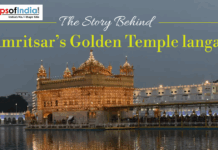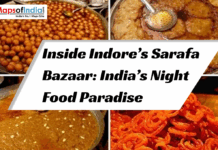The ‘Cyber Hindus’:
Small cells of young urban professionals in their 20s and 30s are mushrooming across the country in favor of Narendra Modi, in the upcoming elections, as a Prime Ministerial candidate, under the banner of the Bhartiya Janata Party (BJP). The main weapon of campaign for these pro – Modi yuppies happen to be the social sites on the Internet. Many such social media groups have been floated. For instance, take the case of the cell formed by four individuals, coming from diverse backgrounds, introduced through the social site Twitter, and nudged into a monthly personal meet in the capital city of Delhi, stemming primarily from the common denominator of seeing Modi as the next Prime Minister of the country, as well as to make some discernable difference in the upcoming elections. Only one individual is directly associated with Modi’s political party. As confirmed by this little group of friends, many such pro – Modi cells are forming across the country.
Such cells are indicative of the departure of the urban middleclass from their status of political disinterest, and active participation in determining the political future of the country. While the membership in such cells is mostly voluntary, some come across with a little push from the BJP. Such support of the politically apathetic, net savvy, urban middle class, definitely adds one more feather to the cap of the Prime Ministerial candidate Narendra Modi.
With the elections just around the corner, the predictions of the opinion polls are in favor of BJP and Modi, who are supposed to bag more seats than their chief political opponent, the ruling Congress Party.
The young proponents of Modi have been invested with the name ‘Cyber Hindus’. They are the online advocators of the political candidature of Modi, actively countering anti Modi issues, while attacking the Gandhi dynasty with contempt and ridicule, who are the pillars of the Congress Party, and had been instrumental in dictating the political scenario of the country, since 1947. While the standard party cadres physically bolster the rallies, the Cyber Hindus extend their support through Tweets and live online streaming of speeches.
Nitin Kashyap, a member of the Cyber Hindu group cited above, and on a six months break from his profession as a financial services advisor, to support the Modi cause, commented, “The guy has done something which should have been done in India a long, long time ago”. Another member, who goes under his Twitter handle @Keshar, claiming anonymity, apprehensive that his political views might adversely affect his business as a brand consultant, dubbed Modi as an ‘uniting force’, and remarked, “That guy has worked his way up from being a tea – boy to becoming an aspiring Prime Minister of India. He’s relating to an IT guy, he’s relating to somebody in the desert, somebody up North in the hills, everybody”. While the fact remains that the Cyber Hindus comprise of an iota of the colossal vote bank of 770 million people, the yuppie advocators of Modi are of the opinion, that they can influence millions of like – minded voters, through the proper utilization of the social sites, to cast their ballots in favor of Modi and the BJP.
The role of the ‘Cyber Hindus’ in the election campaign of Narendra Modi:
As mentioned before, the advent of the ‘Cyber Hindus’ is indicative of a change in the support of BJP, and the political scenario of the country in general. The 1.2 billion strong population of India has a 14% minority of Muslims, while Sikhs, Buddhists and Christians comprise the rest. The visionary precursors of BJP still happen to be the Rashtriya Swayamsevak Sangha (RSS), the inflexible hardboiled advocators of Hinduism.
Modi likes to dub himself as ‘techno – savvy’, as commented by him, in a Reuter’s interview. In claiming so, he is not really far from the truth, with nearly three million Twitter followers and his extensive use of holographic technologies, to deliver speeches in as many as four rallies, simultaneously. On the other hand, the Congress party lags behind in using the technological advancements, mainly due to the difference in the opinions of its old school political leaders, who fails to figure out the impact the said technologies might create on the national vote bank.
However, Modi perceives the use of Internet as an expedient means of communicating with the flourishing youth community of the country, especially when the 2014 elections is supposed to witness 150 million voters, casting their ballots for the first time. According to the survey of International Telecommunications Union, there has been a quantum leap in the number of Internet users, from a meager 0.5% in 2000 to a substantial 12.5% in 2012.
As commented by Arvind Gupta, the chief supervisor of Modi’s Delhi based state of the art IT operations, “Technology is our DNA.” Under Gupta’s supervision, a team of net savvy volunteers are banging away at the keyboards, spreading the messages of the BJP, denouncing criticisms, which may come in the form of articles or comments, and exposing scams and corruptions that might discredit the stands of the opponent political parties. Gupta personally designates the social sites as ‘two way traffic’, highlighting the interactive advantage of the said sites. During the massive pro – Modi rallies, in the different places of the country, volunteers numbering up to more than 100 from the local IT sectors are proactive in streaming live speeches, tweeting, blogging and uploading images. Anil Chalgeri, founder of QualiBrisk, a human resource development company, commented, as he was streaming live, Modi’s address to an assemblage of 300,000 people in Bangalore in November, “It’s not hype – he has a proven track record. They want to see Gujarat across the nation”.
Meanwhile, the Delhi cell of Kashyap and his friends, cited as an example, believes the social sites to be one of the true powers, to reach across hundreds of people if not thousands and emphasizes on implementing a real change in the system of our country. Underlining the limitations of the social media, the third member of this group, one Ankit Jain (26), with a Tweeter following of nearly 8600, and a diamond merchant by profession, commented, “I feel a responsibility on my shoulders. Twitter will not change anything. Voter registration is very important. Every vote counts”. The fourth and the last member of this cell, one Shreshtha Sharma (28), founder of a software development firm, is congruent with his friend’s opinions, but is yet unsure of a hands down victory for the BJP in this election, as evident from his statement, “That will depend on whether this generation has obtained the critical mass. But the generation after us, they will be able to shift it. If Modi isn’t able to do it now, then he will definitely be able to do it later on”. Another member of an Assam based, pro – Modi, social media group, R K Sarma, commented, “We need a leader like him to check the demographic invasion of Assam”, while propagating a cause for ‘better, safer Assam”.
Conclusion:
So these are the Cyber Hindus, appending to the electoral campaigns of Narendra Modi, apparently unseen, providing the covering fire for Modi, from behind the electronic cloud. While some Congress Party leaders like the General Secretary of the State Congress, Ramesh Varlyani, is of the opinion that Modi’s campaigns had not been able to influence the large and the significant voting population of the tribal and scheduled castes, some political analysts like the Aizawl based Vanlaruata, are hopeful that Modi will have an edge over his opponents, in the upcoming elections. Fact remains, that the political persona of Modi remains largely estranged to the voting population of the north eastern states of our country. While the BJP leaders are confident that Modi, as a propagator of the ‘Hinduvta’ issue, will draw a significant amount of the traditional ‘Hinduvta’ votes, the Muslims will undoubtedly form a sharply opposing faction of the Narendra Modi lobby.
In his recent campaign rallies, Modi had played his ‘humble roots’ card quite prudently, that has bedazzled the political community of India. The encouraging salutations, the consistent fan following, the opinion polls, the Cyber Hindus…the Modi impact is quite easily perceived. But one question that sticks out like a sore thumb, is, how much will all these contribute, to secure an unparalleled victory for the BJP??
Related Information:




